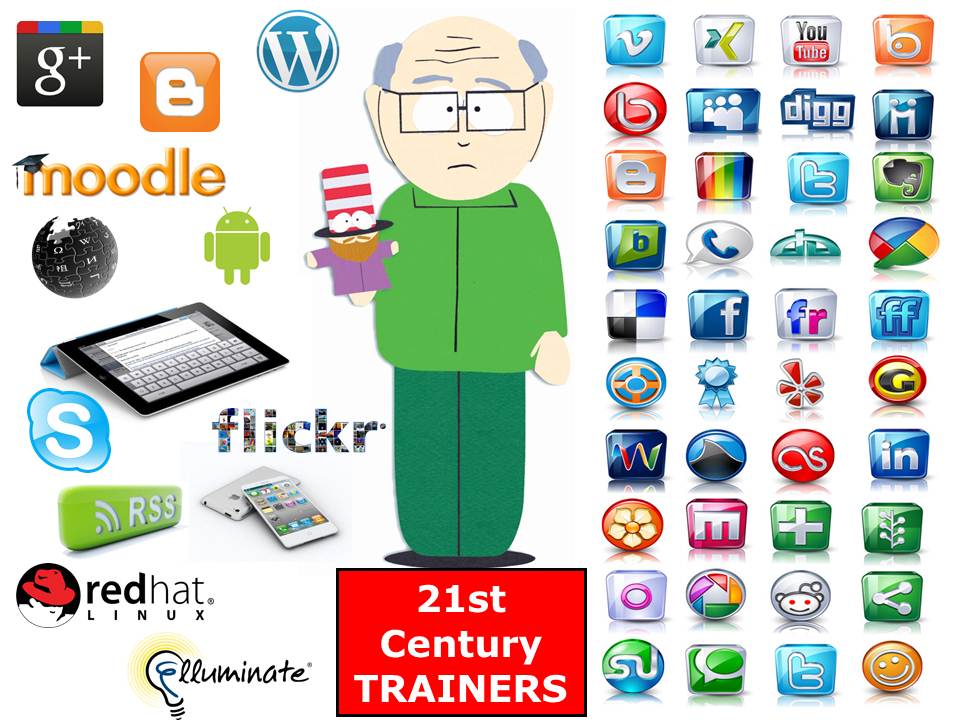For a client I working on transfering a face-to-face training into an online trajectory. It is a challenge and requires some creativity to not only 'translate' the training, but also improve it. Make use of the affordances of online communication to improve the training. I had a talk with a participant of the old training and she thought it was a pity that the training would be offered online. "
previously the training was such a good chance to network and meet new people in the organisation". Talking to her I realized her conviction was that networking is only possible in a face-to-face setting. However, I think it is perfectly possible to network online - that's how I met most of my recent professional contacts.

A second experience was at a workshop for trainers. We had to design a training for a team to work more client-friendly. A days-training. Nobody seemed to think about having a longer trajectory with online components. I am convinced that the trainer of the 21st century will seamlessly weave together face-to-face and online conversations.
These two experiences inspired me to look at the conviction of the 'old' and the 'new' trainer or facilitator.
(image via
allthingslearning). I am convinced that it is quite a paradigm shift, but one which is already taking place.
Which convictions have already changed?
 A second experience was at a workshop for trainers. We had to design a training for a team to work more client-friendly. A days-training. Nobody seemed to think about having a longer trajectory with online components. I am convinced that the trainer of the 21st century will seamlessly weave together face-to-face and online conversations.
A second experience was at a workshop for trainers. We had to design a training for a team to work more client-friendly. A days-training. Nobody seemed to think about having a longer trajectory with online components. I am convinced that the trainer of the 21st century will seamlessly weave together face-to-face and online conversations.

5 comments:
Terrific post. Thoughtful and right on. I particularly appreciated your grid, highlighting the differences in our thinking (old v. new) - really helps to shine a light on the paradigm shift. Thank you!
Thanks Robin!
It almost looks like the trainer / facilitator is becoming obsolete?! Would you say the shift to facilitating self-directed professional development?
I still think there is a role for facilitator but will more become like a convening role - more like the initiator of a community of practice?
It almost looks like the trainer / facilitator is becoming obsolete?! Would you say the future is facilitating self-directed professional development?
Post a Comment